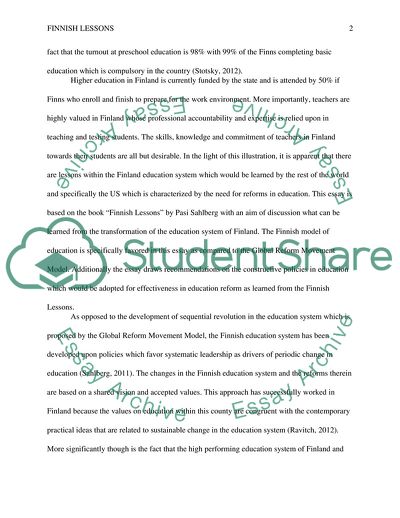Cite this document
(The Finnish Education System Coursework Example | Topics and Well Written Essays - 2250 words, n.d.)
The Finnish Education System Coursework Example | Topics and Well Written Essays - 2250 words. https://studentshare.org/education/1780627-questions-from-the-book-finnish-lessons-aurthor-pasi-sahlberg-9-pages-doubled-space-14-pitch-or-font
The Finnish Education System Coursework Example | Topics and Well Written Essays - 2250 words. https://studentshare.org/education/1780627-questions-from-the-book-finnish-lessons-aurthor-pasi-sahlberg-9-pages-doubled-space-14-pitch-or-font
(The Finnish Education System Coursework Example | Topics and Well Written Essays - 2250 Words)
The Finnish Education System Coursework Example | Topics and Well Written Essays - 2250 Words. https://studentshare.org/education/1780627-questions-from-the-book-finnish-lessons-aurthor-pasi-sahlberg-9-pages-doubled-space-14-pitch-or-font.
The Finnish Education System Coursework Example | Topics and Well Written Essays - 2250 Words. https://studentshare.org/education/1780627-questions-from-the-book-finnish-lessons-aurthor-pasi-sahlberg-9-pages-doubled-space-14-pitch-or-font.
“The Finnish Education System Coursework Example | Topics and Well Written Essays - 2250 Words”. https://studentshare.org/education/1780627-questions-from-the-book-finnish-lessons-aurthor-pasi-sahlberg-9-pages-doubled-space-14-pitch-or-font.


